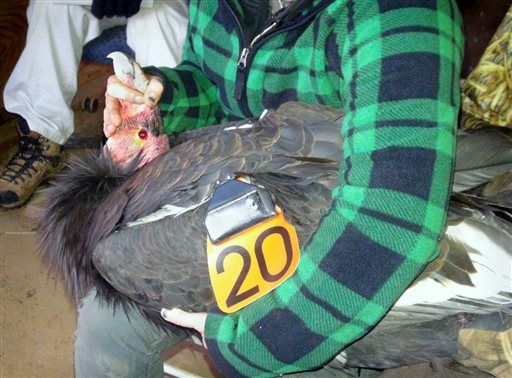PHOENIX — Environmental groups have the legal right to challenge the failure of the U.S. Forest Service to restrict the use of lead ammunition, a federal appeals court ruled Tuesday.
In a brief opinion, the three-judge panel said the Center for Biological Diversity, the Sierra Club and the Grand Canyon Wildlands Council had shown a link between the use of lead ammunition by hunters and the poisoning of endangered California condors.
The judges said that group members provided enough evidence that they are personally being harmed because of the use of the ammunition. That’s because they said they intend to keep visiting the Kaibab National Forest, which spans both sides of the Grand Canyon National Park.
Tuesday’s ruling is more than a setback for the U.S. Forest Service, which has refused to enact such a ban. It also is a defeat for the National Rifle Association, which intervened in the case and denied condors had been harmed because of the ammunition.
Tuesday’s ruling does not guarantee that the Forest Service will be forced to act. It simply gives the environmental groups a chance to make their case.
The lawsuit, filed in 2012, is based on the fact that condors and other birds are essentially scavengers, feeding on animals that have been shot with lead ammunition but are not retrieved by hunters. Lead ingested has a cumulative effect.
Challengers said there were 46 condor fatalities in 1996 and 2011 where a cause of death could be determined. Of those, 21 were due to lead poisoning and another two of suspected lead poisoning.
The lawsuit seeks to force the Forest Service to ban the use of lead ammunition in the area.
In 2013 U.S. District Judge Stephen McNamee dismissed the case, ruling that matters of hunting are usually left to each state.
The judge further said condors have a range that runs from Nevada through southwest Arizona to the New Mexico border. McNamee said that means they could still be exposed to lead even if the use of such ammunition is banned in the forest.
But the three-judge appellate panel, in Tuesday’s unsigned opinion, said the fact that condors might ingest lead elsewhere did not mean the Forest Service should do nothing. They said any limit on lead will at least partially address the problems.
The judges also noted that courts have the power under federal law to “restrain any person who has contributed to disposal of a solid or hazardous waste that presents an imminent and substantial danger.” And that law, they said, permits courts to order that person to “take such other action as may be necessary.”
All that, the judges said, gives the environmental groups standing to pursue the case.
In a prepared statement, Lori Ann Burd, environmental health director for the Tucson-based Center for Biological Diversity, said the ruling is a significant victory.
“Lead ammo has taken a long, terrible and deadly toll on California condors and it’s time for it to stop,” she said.





